Popularity of Smart Drugs – See the Movie
 A wide variety of pills and drugs promise to improve brain function or help us achieve peak cognitive performance. Called cognitive enhancers, smart pills or nootropics they reportedly improve mental energy and focus, memory or creativity through altered states. They include drugs such as cannabis and hallucinogens as well as off-prescription use of medications especially those used for attention-deficit disorders such as Adderall.
A wide variety of pills and drugs promise to improve brain function or help us achieve peak cognitive performance. Called cognitive enhancers, smart pills or nootropics they reportedly improve mental energy and focus, memory or creativity through altered states. They include drugs such as cannabis and hallucinogens as well as off-prescription use of medications especially those used for attention-deficit disorders such as Adderall.
The use of smart drugs appears wide spread in colleges and the professions. Their short term and long-term impact on those seeking higher cognitive performance has not been studied. Smart pills are so popular they even star in movies. Just released, the movie Limitless stars a smart pill to access the other 90% of your brain. It transforms your life. But there is a catch.
Interested to hear from readers that use smart pills to enhance brain function or cognitive performance. What do you take, how much and how does it work?
Categories: Memory and Learning, Mental Focus Tags: mental energy, smart drugs
Vastly Improve Mental Focus By Switching
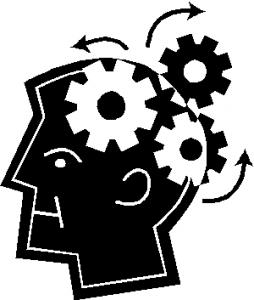 Prolonging mental focus is not about taking a rest break but momentarily switching to a task to get a jolt of mental energy or novelty.
Prolonging mental focus is not about taking a rest break but momentarily switching to a task to get a jolt of mental energy or novelty.
Staying focused on a specific task or topic can be difficult. Called vigilance or our ability to “keep watch” it is vitally important for top mental performance in any field. As such we will cover scientific studies on how to improve mental focus and vigilance on the Next Brain Blog.
For example, new research from University of Illinois reported in the journal Cognition found that brief diversions from a task actually vastly improves your mental focus. While we all know you need to take breaks to stay fresh, this finding is different.
Test subjects in this study memorized four digits (four different numbers each less than 10) before taking on a different mental task for 50 minutes. Subjects were told to signal if they saw one of the digits flash on the computer screen they were working with. Some of the test subjects were shown digits during work on the 50-minute task (called the switch group) others were not. There was also a control group that knew nothing about the digits but saw them during the task. Here is what they found:
“As expected, most participants’ performance declined significantly over the course of the task. But critically, Lleras said, those in the switch group saw no drop in their performance over time”.
The brief diversions rather than hurting mental focus provides the novelty that we need to stay focus. We lose mental focus when nothing changes. We get bored and details fad into the background.
Note the switch group did not take a five minute break, they did not even take a 1 minute break. It is not about resting. It is about getting a small jolt of mental energy or novelty.
You can improve cognitive performance on long tasks by momentarily switching to tasks that provide a small dash of mental novelty. Interested to hear from readers that use this technique. What small diversions or switching tasks do you use?
Categories: Executive Function, Lifestyle, Mental Focus Tags: mental energy
Get Benefits of Long-Term Meditation in Just Days?
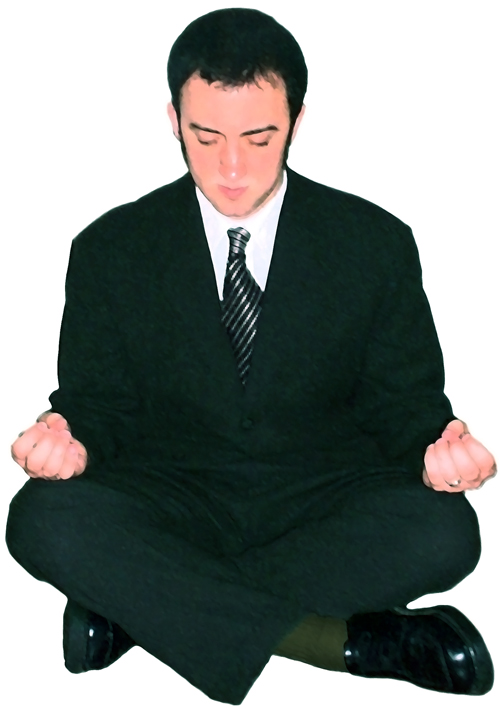 It was about 10 years ago when research studies began to suggests that a little bit of physical activity could be good for you. Taking a short walk or even just climbing a flight of stairs might be heart-healthy. This was a big surprise for many as traditional wisdom was that you must work-out multiple times per week for many weeks to see benefits.
It was about 10 years ago when research studies began to suggests that a little bit of physical activity could be good for you. Taking a short walk or even just climbing a flight of stairs might be heart-healthy. This was a big surprise for many as traditional wisdom was that you must work-out multiple times per week for many weeks to see benefits.
Now the same may be emerging for brain training at least in the area of mindfulness and meditative practice. I am seeing studies that suggest a few days of training may produce what we once thought took months or years. The Science Daily Blog reports one such study, Brief Meditation Helps Cognition:
“Psychologists studying the effects of a meditation technique known as “mindfulness ” found that meditation-trained participants showed a significant improvement in their critical cognitive skills (and performed significantly higher in cognitive tests than a control group) after only four days of training for only 20 minutes each day.”
Specific improvements included increased mental energy, reduced anxiety and improved working memory, visual/spatial processing and executive functioning (attention, planning thinking).
Interestingly, no special training technique was used.
As described in the paper, “participants were instructed to relax, with their eyes closed, and to simply focus on the flow of their breath occurring at the tip of their nose. If a random thought arose, they were told to passively notice and acknowledge the thought and to simply let ‘it’ go, by bringing the attention back to the sensations of the breath.” Subsequent training built on this basic model, teaching physical awareness, focus, and mindfulness with regard to distraction.
Mindfulness training is not as natural as climbing a flight of stairs or taking a walk but clearly it is something we can learn. I am interested to hear from readers that practice mindfulness, especially how they were able to initially learn the technique.
Source: Image of Meditating Man
Categories: Ancient Ways, Executive Function, Mental Focus, Training Tags: meditation, mental energy, mindfulness
Coffee: The Preferred Drink of High Performing Long-Lasting Brains
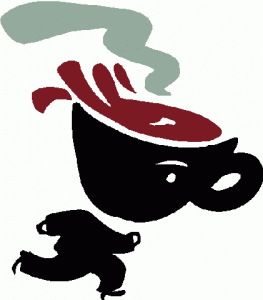 In the Next Brain Blog we explore specific ideas and tools for improving cognitive performance and brain function. Low lying fruit or approaches that are simple, scientifically proven and easy to enact are of special interest.
In the Next Brain Blog we explore specific ideas and tools for improving cognitive performance and brain function. Low lying fruit or approaches that are simple, scientifically proven and easy to enact are of special interest.
Consider for example the simple act of drinking coffee or a relate caffeinated beverage. The scientific evidence for the brain-enhancing effects of coffee are really stacking up. A recent post on Psychology Today’s New Brain Blog, The Fountain of Youth in A Cup of Coffee – Ladies Only, reports:
“Coffee lovers appreciate the mood kick and mental boost a delicious cup of java provides. The enhanced learning, memory, and speed of information processing caffeine delivers has been well documented scientifically. New research published on-line in the current issue of the Journal of Alzheimer’s Disease, reports that coffee can also ward off some effects of aging on the brain. Previous research has shown that caffeine lessens the damage of Alzheimer’s disease caused by the toxic peptide that forms the senile plaques in brains of Alzheimer’s patients. This new study examined 641 elderly persons (over the age of 65) living in three cities in France, Bordeaux, Dijon, and Montpellier. Researchers found a relation between coffee consumption and prevention of cognitive deterioration including the loss of brain tissue in the elderly.”
The post goes on to discuss a recent brain scanning study that shows women (but not men) that drink 3-cups (but not less) of coffee per day lose less white matter after age 50. Thus the subtitle on the post – for women only. But the other studies and effects appear gender neutral.
Boosting energy, mood, memory, learning, processing speed as well as blocking aspects of cognitive decline… all from drinking coffee!
Coffee can have other effects as well. Any changes in diet, physical activity or lifestyle should be considered carefully.
Source: Image of Coffee Man
Categories: Cognitive Decline, Diet, Manage Emotions, Memory and Learning, Mental Focus Tags: mental energy
Use Off Prescription Drugs to Enhance Cognition?
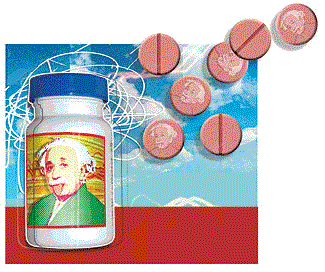 Drugs designed for Alzheimer’s disease, ADHD, narcolepsy and other neurological disorders are finding new off-prescription use as cognitive enhancers. Students, professionals and many other citizen have reported using prescription-only drugs such as Aderaal (a form of ritlan for ADHD) and Modafinil (a stimulant used to treate narcolepsy) to boost mental performance. Typical non-medical uses of these “smart drugs” include efforts to improve concentration, enhance memory and create mental energy.
Drugs designed for Alzheimer’s disease, ADHD, narcolepsy and other neurological disorders are finding new off-prescription use as cognitive enhancers. Students, professionals and many other citizen have reported using prescription-only drugs such as Aderaal (a form of ritlan for ADHD) and Modafinil (a stimulant used to treate narcolepsy) to boost mental performance. Typical non-medical uses of these “smart drugs” include efforts to improve concentration, enhance memory and create mental energy.
Using smart drugs without a prescription is illegal but they are easily available on the internet and from street sources. As reported in the commentary, Toward responsible use of cognitive-enhancing drugs by the healthy, in the prestigious scientific journal Nature:
“Today, on university campuses around the world, students are striking deals to buy and sell prescription drugs such as Adderall and Ritalin — not to get high, but to get higher grades, to provide an edge over their fellow students or to increase in some measurable way their capacity for learning.”
And it is not just students but professors, physicians, lawyers, engineers and many other professionals.
Not surprising there is little or no scientific evidence that these drugs work to enhance cognitive performance of healthy people. However, the subjective effect of increased mental energy seems unmistakable.
With many people experimenting with smart drugs, and a growing number of calls for studying their use to achieve peak cognitive performance, they will be a frequent topic in the Next Brain Blog.
Please leave a comment if you have experience in using smart drugs that you want to share with other readers.
Source: Image of Smart Drugs
Categories: College Student, Lifestyle, Memory and Learning, Mental Focus, Professional Tags: mental energy, smart drugs
Want to Dramatically Improve Self-Control?
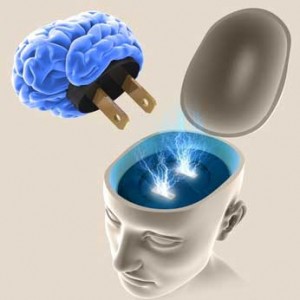 Then learn to manage your mental energy!
Then learn to manage your mental energy!
Science has made considerable inroads over the last few years defining, measuring and understanding the role mental energy plays in cognitive performance. Mental energy is defined as the combination of the ability to do mental work, the motivation for doing that work and your subjective feeling of fatigue. Key findings about mental energy include:
- We only have so much to use – it is a limited resource
- Exercising self-control or regulating our thoughts, emotions and behavioral responses burns considerable mental energy – much more than other cognitive processes such as learning and decision-making
- Running low on mental energy means loss of impulse control
- We can do specific things to replenish our supply of mental energy
Given the central role that mental energy (and its management) plays in cognitive performance it will be a frequent topic on the Next Brain blog.
Techniques for getting started in managing your mental energy include:
- Measuring your level of self-control and other cognitive tendencies that make extensive use of mental energy
- Journaling to understand how you wisely (or not) you use mental energy throughout the day
- Planning or budgeting your mental energy so you don’t set goals or engage in activities that result in sever depletion
- Developing habits that naturally restore your supply
Little things make a big difference when it comes to managing mental energy.
Categories: Executive Function, Lifestyle, Manage Emotions, Mental Focus, Training Tags: mental energy
